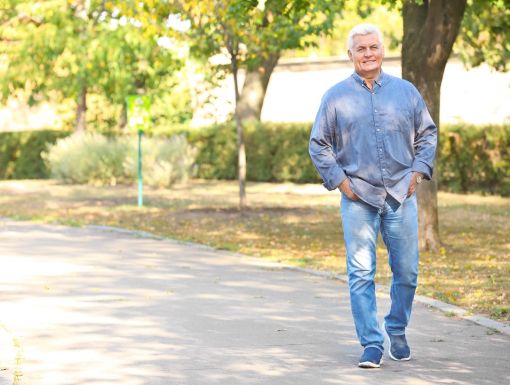
How Can You Tell if Someone Is Having a Stroke?
Strokes are one of the most serious health emergencies, ranking as the fifth leading cause of death in the United States. Yet, misconceptions about strokes continue, putting lives at risk. Understanding stroke awareness, recognizing stroke risk factors, and knowing how to act quickly can make all the difference. Here, we’ll bust some common myths, explore the symptoms, and show you how to recognize a stroke and act when every second counts.
Are strokes only a problem for older adults?
No, strokes don’t just affect older people. While age is a risk factor, strokes can happen at any stage of life. Did you know that a quarter of all strokes occur in people under 65? Even more surprising, about 10% of strokes affect persons under 45 years old. Younger people often overlook the possibility of a stroke, leading to delayed treatment. Stroke awareness matters for everyone, regardless of age. Learning how to recognize a stroke and respond quickly could save a life.
Is a stroke the same as a heart attack?
Not at all. Although strokes and heart attacks are both vascular conditions, they affect different parts of the body. A heart attack happens when a blood vessel in the heart is blocked, while a stroke disrupts blood flow to the brain. Because strokes are sometimes referred to as “brain attacks,” the terms often get confused. However, treatment and outcomes differ. Staying informed helps ensure a proper response when someone is experiencing either condition.
Do all strokes come with a headache?
No, they don’t. A common myth suggests that strokes always cause an intense headache. While this can be true for some strokes, most ischemic stroke occur without pain. Common stroke symptoms include sudden numbness, weakness (especially on one side of the body), confusion, slurred speech, vision loss, or trouble walking. Staying alert to these subtle signs is a key part of stroke awareness. If something feels wrong, trust your instincts and act swiftly.
How much time do you have to get help after a stroke?
Unfortunately, not much. Time is critical when dealing with strokes, especially those caused by a blood clot blocking an artery. There’s a narrow four and a half hour window to administer a clot-busting drug called TNK for these cases. Some patients may be candidates for a procedure to remove a clot via catheter, but the chances of recovery decrease with every delay. Recognizing strokes early and acting fast can help prevent permanent damage and disability. At the first sign of a stroke, call 911 immediately. Emergency responders are trained to handle these situations quickly, increasing the chances of a better outcome.
Should you take an aspirin if you think you’re having a stroke?
If you think you’re having a heart attack, taking aspirin right away is usually a good idea. But if you think you’re having a stroke, you shouldn’t take aspirin. Aspirin thins the blood and can make strokes caused by bleeding (called hemorrhagic strokes) worse. Doctors might give you aspirin in the hospital, but only after they make sure the stroke isn’t caused by bleeding.
Can strokes be prevented?
Yes, and this is where stroke risk factors come into play.. Managing conditions like high blood pressure, diabetes, and high cholesterol can dramatically lower your risk. Adding heart-healthy habits like regular exercise, eating a nutritious diet, quitting smoking, and maintaining a healthy weight also play a major role. Understanding your stroke risk factors and addressing them now can have long-lasting benefits for your health.
What stroke symptoms should you look out for?
Stroke symptoms can come on quickly and without warning. To simplify stroke awareness and help you remember what to do, think BE FAST:
- Balance: Sudden loss of balance, severe dizziness, or difficulty walking; keep the person seated or lying down.
- Eyes: Sudden vision changes like blurriness, double vision, or complete vision loss; stay calm to avoid worsening symptoms.
- Face drooping: If one side of the face looks uneven or crooked. Ask the individual to smile and watch for asymmetry.
- Arm weakness: Difficulty lifting one arm or a sensation of numbness; ask them to raise both arms and see if one drifts.
- Speech trouble: Listen for slurred or confused speech; ask them to repeat a sentence like, “The sky is blue.”
- Time to call 911: If any of these signs appear, seek immediate medical attention.
Knowing how to recognize a stroke can minimize long-term damage and save lives. Quick action is essential.
Clearing up misunderstanding about strokes
Understanding strokes is important to getting the proper care. Many people have wrong ideas about strokes, so here are some facts to clear up confusion.
- Strokes can happen to anyone: Strokes don’t only affect unhealthy people. Even those who seem healthy can have strokes. Genetics, undiagnosed health conditions, or stress may still be factors.
- Quick action is critical: If stroke symptoms appear, getting medical help immediately. Waiting is one of the worst things you can do. Delayed care increases the risk of severe brain damage or death.
- Not all symptoms are obvious: Strokes don’t always cause clear or noticeable disabilities. Some strokes cause subtle symptoms but can still result in serious, long-term complications if untreated.
How can you protect yourself and your loved ones from a stroke?
Stroke awareness and prevention go hand in hand. Regular check-ups with your doctor are crucial to monitor key indicators like blood pressure, cholesterol and blood sugar levels. Note stroke risk factors in your family history and address any concerns proactively. Managing stress, staying active, and eating well also help reduce your risk dramatically.
The most important step is recognizing when symptoms appear. Knowing how to identify a stroke and acting quickly could be lifesaving, whether it's you, a family member, or even a stranger. Remember BE FAST, trust your instincts, and never hesitate to call for help.
Ochsner Neuroscience Institute is the only program in Louisiana listed in the U.S. News & World Report Best Hospitals rankings as High Performing, indicating one of the country's top neurology and neurosurgery programs.
By educating yourself about stroke awareness, the risk factors, and the signs to watch for, you empower yourself and your community to take control. Strokes might be unpredictable, but you can make a real difference with knowledge and action.
Take our online quiz to find out whether you're at risk for a stroke.


